Schmalkalden University of Applied Sciences
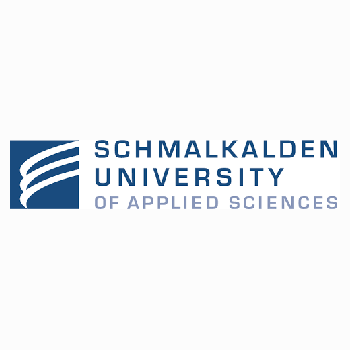
Founded: 1992
Address: Blechhammer - Thuringia, Germany
Phone: +49 3683 6880
Address: Blechhammer - Thuringia, Germany
Phone: +49 3683 6880
Here you find out Schmalkalden University of Applied Sciences complete information about fees, location, degree Schmalkalden University of Applied Sciences offers, number, website, and much more. Schmalkalden University of Applied Sciences is a leading university in Thuringia - Germany.
You can also find out jobs at Schmalkalden University of Applied Sciences for students, teachers, and professors. We also update the database for an internship at Schmalkalden University of Applied Sciences for students.
More than 3,000 students in the Faculties of Business and Economics, Business Law, Computer Science, Electrical Engineering and Mechanical Engineering are currently enjoying the numerous opportunities which studying in Schmalkalden offers. Various university rankings show that our students can enjoy high-quality education and the University of Applied Sciences Schmalkalden offers ideal conditio...ns: a campus with everything within easy walking distance, state-of-the-art laboratories and a modern library, as well as personal contacts between lecturers and students.
In addition, studying at the University of Applied Sciences Schmalkalden is characterised by internationality. With over 70 partner universities worldwide, the university has a dense network of cooperations, enabling our students a stay abroad. Numerous cultural events, an extensive range of sports activities and the proximity to the winter sports town of Oberhof and to the theatre town of Meiningen make our university an attractive place to study.
Furthermore, the Schmalkalden University of Applied Sciences perceives itself as a regional competence centre for technology and innovation in Southern Thuringia and is, for many enterprises, a significant cooperation and network partner for research and technology transfer. As such, application-oriented research plays an important role. Enterprises can benefit from our services and contact us via the business portal.
The Schmalkalden University of Applied Sciences offers a total of 17 bachelor programmes at the faculties of Electrical Engineering, Computer Science, Mechanical Engineering, Business Law and Business and Economics.
The Business Administration programme covers the economic issues of businesses. What kinds of products does the consumer demand? How do I guarantee optimal production of my product? How do I sell it? You will be given answers to these and many other questions concerning the management of businesses.
The extra occupational Business Administration programme with integrated practice-based projects covers the main topics of business, product and service management – from market research and procurement, through finance and marketing to human resources.
These bachelor studies are very practice-oriented and offer five future-related specialisation subjects: automation technology, embedded systems, electrical engineering, vehicle electronics and information technology. You will be trained in the fields of mathematics, physics, computer science, electrical engineering and communication technology.
These bachelor studies will qualify you for developing and faultlessly operating assistance systems in the areas of healthcare, medical science and nursing. These practice-oriented studies will provide you with both medical-technical and healthcare-related skills.
These bachelor studies address the different task fields of informatics such as process structuring, system architecture, network building, hardware and software development and implementation as well as the economic and ergonomic design of application systems.
With these bachelor studies you will receive basic training in general economics. 50 percent of the compulsory elective subjects are to be taken in English, just like the bachelor thesis and the colloquium. Moreover, you will spend one semester abroad as part of the studies.
This course of studies addresses students who are especially interested in a career with an international focus. You will start by acquiring basic knowledge in the fields of business law and economics. With targeted programmes you will expand your English language skills. By selecting elective-compulsory modules and focus areas you will be able to tailor your academic studies to your preferences.
Mechanical Engineering is the classic within the technical studies: rich in tradition and at the same time innovative and future-proof. The standard study period is seven semesters. Upon successful completion of the course you may use the professional title “engineer”. A previous four-week internship in a company is required for admission to study.
This innovative bachelor programme will provide you with the basics and with practice-oriented skills necessary for IT projects regarding the Internet of Things. You will learn how to master the specific challenges of the application development on mobile devices, of wireless communication and of processing sensor data. This will prepare you well for the mobile revolution that is capturing large parts of the industry.
These Bachelor studies will provide you with specific skills on digital marketing. Starting with the basics of economics and programming you will then focus in more detail on media design, on-line marketing (e.g. SEO, social-media marketing) and current marketing issues.
In these Bachelor studies you will learn by means of models how macro-economic indicators like inflation or exchange rates work. Moreover, you will discover models explaining the behaviour of businesses and households by which you can evaluate the development of single economic sectors or market structures.
Business Informatics builds on the findings of informatics and links them to the requirements of the economy. You will learn about information and communication systems that are used to support business processes and decision making in organisations as well as in public administration.
The combination of industrial and mechanical engineering offers excellent opportunities for individual development in the labour market. The seven-semester studies feature practice-oriented business training. A previous four-week internship in a company is required for admission to study.
Business engineers form the link between the technical and commercial tasks of an organisation. These Bachelor studies provide knowledge and methods of electrical engineering, sciences and economics as well as key qualifications, qualifying the students as generalists.
The main focus of these Bachelor studies is on practice-oriented legal training, attaching special emphasis on a close link to economic issues. Furthermore, you will acquire key qualifications such as foreign languages, IT skills and social competence, in particular consideration of gender-specific aspects.
The extra occupational study programme Business Law including practical projects teaches both legal skills and profound knowledge in business administration – and enables future business lawyers to become specialised strategists who are in much demand on the job market.
The economic sciences deal with the economic issues of businesses while macroeconomics are focused on those of states. These bachelor studies provide you with profound knowledge of both areas, granting you a view to the whole and to the detail.
BISS – „Apprenticeship-Integrated Studies Schmalkalden“ – that is what we call a real success story: practical training in an enterprise, earning money plus scientific work at a university.
BISS – „Apprenticeship-Integrated Studies Schmalkalden“ – that is what we call a real success story: practical training in an enterprise, earning money plus scientific work at a university.
The history of the University of Applied Sciences Schmalkalden dates back to the year 1902 when, on 1 July, the “Royal Technical College for Iron and Steel Industry Schmalkalden" was established.
For centuries, the people in the region around Schmalkalden had been making their living from the manufacture of all kinds of ironware goods such as awls, files, curry combs, drills, pliers, spoons, nails, buckles, and so on, which even today are known as “Schmalkalden goods”. However, these goods, manufactured in small businesses, now faced industrial competition from Rhineland-Westphalian factories and from overseas which they weren’t able to withstand.
If an improvement to the economic situation was to be achieved, the production process had to be modernised and the workers better trained. In 1893, the Schmalkalden Administrative Officer, Dr. Hagen, suggested to the Prussian Minister for Commerce and Trade to establish a Technical College similar to the one in Remscheid.
Right from the beginning the college did not only regard itself as a training centre for craftsmen, but also offered businesses of the region a large variety of training programmes and its teachers were available for technical, technological and commercial consultancy.
Each teacher worked several weeks per year in one of the leading German businesses in order to familiarise himself with modern plants, machines, facilities and procedures. All of this helped to guarantee a training conform to the standards of that time.
The engineer Emil Beil was the first college director and held this position for twenty-seven years. It was not least due to him that the college quickly acquired a good reputation even beyond the Prussian borders. The student directories and the school inspectorate files give clear evidence for this.
The college also achieved international recognition. Even before the First World War visitors came from various European countries, the USA and China, in order to take a look at what was going on here. The new institution contributed to the economic improvement especially through the intensive advisory services to Schmalkalden businesses.
After the Weimar Republic was formed in 1918, the college continued its work as “State Technical College for Iron and Steel Industry Schmalkalden" without any change to its duties. As from 1920, master classes complemented the training programme. A new development stage began after the Second World War as the escalating demand for technical engineers could not be met by the training capacities at engineering schools.
Technician training in Schmalkalden commenced in the autumn of 1945. By order of the Thuringian Ministry of Education, the college was converted to a School of Mechanical Engineering in 1948. In the spring of 1951, the first engineers who had trained in Schmalkalden received their certificates. From then on, the number of students increased continuously.
In the course of the following 45 years up to the termination of training at this “School of Engineering Schmalkalden” in 1995, more than 10,000 young people received their engineer’s diploma. Students came from all parts of the then German Democratic Republic, from the Baltic Sea to the Lausitz (Lusatia) area. The quality of their training contributed substantially to the fact that mechanical engineers from Schmalkalden enjoyed an excellent reputation everywhere. Up to the construction of the Berlin Wall this reputation extended into the western part of our fatherland so that in the 1950s job offers for engineers appeared occasionally in West German trade journals stating that applications from graduates of the School of Engineering Schmalkalden would be given preference.
On 1 October 1991, with the founding of the University of Applied Sciences, began for Schmalkalden a new milestone in the history of higher education. Mechanical engineering remained one of the pillars in the university’s study programme and others were added. The Faculty of Electrical Engineering was established in the founding year, offering a programme with the same name. The following year the Faculty of Computer Science and the Faculty of Business and Economics followed suit, and in so doing the first steps towards establishing a modern university with both technical and business orientation had been taken.
However, it soon became clear that an efficient, modern university in Schmalkalden could only be sustained through the construction of new buildings. With the active support of the city of Schmalkalden and the local authorities the required grounds could be secured in the following years.
On the site of the old Prussian college a plot was purchased that enabled the construction of a single-campus university. In the autumn of 2000, the first single-campus university in Thuringia opened which included a central lecture building with three large lecture halls and numerous seminar rooms as well as a library - a light-flooded, glass building with separate, water-surrounded, outdoor “reading island”.
The Faculties of Mechanical Engineering and Electrical Engineering have new, modern laboratory buildings and the Faculty of Computer Science is now in a new building. The cafeteria also boasts a modern design. The university’s buildings immediately catch the eye: they are alive with positive energy flowing between historical structure and modern architecture.
You can also find out jobs at Schmalkalden University of Applied Sciences for students, teachers, and professors. We also update the database for an internship at Schmalkalden University of Applied Sciences for students.
More than 3,000 students in the Faculties of Business and Economics, Business Law, Computer Science, Electrical Engineering and Mechanical Engineering are currently enjoying the numerous opportunities which studying in Schmalkalden offers. Various university rankings show that our students can enjoy high-quality education and the University of Applied Sciences Schmalkalden offers ideal conditio...ns: a campus with everything within easy walking distance, state-of-the-art laboratories and a modern library, as well as personal contacts between lecturers and students.
In addition, studying at the University of Applied Sciences Schmalkalden is characterised by internationality. With over 70 partner universities worldwide, the university has a dense network of cooperations, enabling our students a stay abroad. Numerous cultural events, an extensive range of sports activities and the proximity to the winter sports town of Oberhof and to the theatre town of Meiningen make our university an attractive place to study.
Furthermore, the Schmalkalden University of Applied Sciences perceives itself as a regional competence centre for technology and innovation in Southern Thuringia and is, for many enterprises, a significant cooperation and network partner for research and technology transfer. As such, application-oriented research plays an important role. Enterprises can benefit from our services and contact us via the business portal.
The Schmalkalden University of Applied Sciences offers a total of 17 bachelor programmes at the faculties of Electrical Engineering, Computer Science, Mechanical Engineering, Business Law and Business and Economics.
The Business Administration programme covers the economic issues of businesses. What kinds of products does the consumer demand? How do I guarantee optimal production of my product? How do I sell it? You will be given answers to these and many other questions concerning the management of businesses.
The extra occupational Business Administration programme with integrated practice-based projects covers the main topics of business, product and service management – from market research and procurement, through finance and marketing to human resources.
These bachelor studies are very practice-oriented and offer five future-related specialisation subjects: automation technology, embedded systems, electrical engineering, vehicle electronics and information technology. You will be trained in the fields of mathematics, physics, computer science, electrical engineering and communication technology.
These bachelor studies will qualify you for developing and faultlessly operating assistance systems in the areas of healthcare, medical science and nursing. These practice-oriented studies will provide you with both medical-technical and healthcare-related skills.
These bachelor studies address the different task fields of informatics such as process structuring, system architecture, network building, hardware and software development and implementation as well as the economic and ergonomic design of application systems.
With these bachelor studies you will receive basic training in general economics. 50 percent of the compulsory elective subjects are to be taken in English, just like the bachelor thesis and the colloquium. Moreover, you will spend one semester abroad as part of the studies.
This course of studies addresses students who are especially interested in a career with an international focus. You will start by acquiring basic knowledge in the fields of business law and economics. With targeted programmes you will expand your English language skills. By selecting elective-compulsory modules and focus areas you will be able to tailor your academic studies to your preferences.
Mechanical Engineering is the classic within the technical studies: rich in tradition and at the same time innovative and future-proof. The standard study period is seven semesters. Upon successful completion of the course you may use the professional title “engineer”. A previous four-week internship in a company is required for admission to study.
This innovative bachelor programme will provide you with the basics and with practice-oriented skills necessary for IT projects regarding the Internet of Things. You will learn how to master the specific challenges of the application development on mobile devices, of wireless communication and of processing sensor data. This will prepare you well for the mobile revolution that is capturing large parts of the industry.
These Bachelor studies will provide you with specific skills on digital marketing. Starting with the basics of economics and programming you will then focus in more detail on media design, on-line marketing (e.g. SEO, social-media marketing) and current marketing issues.
In these Bachelor studies you will learn by means of models how macro-economic indicators like inflation or exchange rates work. Moreover, you will discover models explaining the behaviour of businesses and households by which you can evaluate the development of single economic sectors or market structures.
Business Informatics builds on the findings of informatics and links them to the requirements of the economy. You will learn about information and communication systems that are used to support business processes and decision making in organisations as well as in public administration.
The combination of industrial and mechanical engineering offers excellent opportunities for individual development in the labour market. The seven-semester studies feature practice-oriented business training. A previous four-week internship in a company is required for admission to study.
Business engineers form the link between the technical and commercial tasks of an organisation. These Bachelor studies provide knowledge and methods of electrical engineering, sciences and economics as well as key qualifications, qualifying the students as generalists.
The main focus of these Bachelor studies is on practice-oriented legal training, attaching special emphasis on a close link to economic issues. Furthermore, you will acquire key qualifications such as foreign languages, IT skills and social competence, in particular consideration of gender-specific aspects.
The extra occupational study programme Business Law including practical projects teaches both legal skills and profound knowledge in business administration – and enables future business lawyers to become specialised strategists who are in much demand on the job market.
The economic sciences deal with the economic issues of businesses while macroeconomics are focused on those of states. These bachelor studies provide you with profound knowledge of both areas, granting you a view to the whole and to the detail.
BISS – „Apprenticeship-Integrated Studies Schmalkalden“ – that is what we call a real success story: practical training in an enterprise, earning money plus scientific work at a university.
BISS – „Apprenticeship-Integrated Studies Schmalkalden“ – that is what we call a real success story: practical training in an enterprise, earning money plus scientific work at a university.
The history of the University of Applied Sciences Schmalkalden dates back to the year 1902 when, on 1 July, the “Royal Technical College for Iron and Steel Industry Schmalkalden" was established.
For centuries, the people in the region around Schmalkalden had been making their living from the manufacture of all kinds of ironware goods such as awls, files, curry combs, drills, pliers, spoons, nails, buckles, and so on, which even today are known as “Schmalkalden goods”. However, these goods, manufactured in small businesses, now faced industrial competition from Rhineland-Westphalian factories and from overseas which they weren’t able to withstand.
If an improvement to the economic situation was to be achieved, the production process had to be modernised and the workers better trained. In 1893, the Schmalkalden Administrative Officer, Dr. Hagen, suggested to the Prussian Minister for Commerce and Trade to establish a Technical College similar to the one in Remscheid.
Right from the beginning the college did not only regard itself as a training centre for craftsmen, but also offered businesses of the region a large variety of training programmes and its teachers were available for technical, technological and commercial consultancy.
Each teacher worked several weeks per year in one of the leading German businesses in order to familiarise himself with modern plants, machines, facilities and procedures. All of this helped to guarantee a training conform to the standards of that time.
The engineer Emil Beil was the first college director and held this position for twenty-seven years. It was not least due to him that the college quickly acquired a good reputation even beyond the Prussian borders. The student directories and the school inspectorate files give clear evidence for this.
The college also achieved international recognition. Even before the First World War visitors came from various European countries, the USA and China, in order to take a look at what was going on here. The new institution contributed to the economic improvement especially through the intensive advisory services to Schmalkalden businesses.
After the Weimar Republic was formed in 1918, the college continued its work as “State Technical College for Iron and Steel Industry Schmalkalden" without any change to its duties. As from 1920, master classes complemented the training programme. A new development stage began after the Second World War as the escalating demand for technical engineers could not be met by the training capacities at engineering schools.
Technician training in Schmalkalden commenced in the autumn of 1945. By order of the Thuringian Ministry of Education, the college was converted to a School of Mechanical Engineering in 1948. In the spring of 1951, the first engineers who had trained in Schmalkalden received their certificates. From then on, the number of students increased continuously.
In the course of the following 45 years up to the termination of training at this “School of Engineering Schmalkalden” in 1995, more than 10,000 young people received their engineer’s diploma. Students came from all parts of the then German Democratic Republic, from the Baltic Sea to the Lausitz (Lusatia) area. The quality of their training contributed substantially to the fact that mechanical engineers from Schmalkalden enjoyed an excellent reputation everywhere. Up to the construction of the Berlin Wall this reputation extended into the western part of our fatherland so that in the 1950s job offers for engineers appeared occasionally in West German trade journals stating that applications from graduates of the School of Engineering Schmalkalden would be given preference.
On 1 October 1991, with the founding of the University of Applied Sciences, began for Schmalkalden a new milestone in the history of higher education. Mechanical engineering remained one of the pillars in the university’s study programme and others were added. The Faculty of Electrical Engineering was established in the founding year, offering a programme with the same name. The following year the Faculty of Computer Science and the Faculty of Business and Economics followed suit, and in so doing the first steps towards establishing a modern university with both technical and business orientation had been taken.
However, it soon became clear that an efficient, modern university in Schmalkalden could only be sustained through the construction of new buildings. With the active support of the city of Schmalkalden and the local authorities the required grounds could be secured in the following years.
On the site of the old Prussian college a plot was purchased that enabled the construction of a single-campus university. In the autumn of 2000, the first single-campus university in Thuringia opened which included a central lecture building with three large lecture halls and numerous seminar rooms as well as a library - a light-flooded, glass building with separate, water-surrounded, outdoor “reading island”.
The Faculties of Mechanical Engineering and Electrical Engineering have new, modern laboratory buildings and the Faculty of Computer Science is now in a new building. The cafeteria also boasts a modern design. The university’s buildings immediately catch the eye: they are alive with positive energy flowing between historical structure and modern architecture.
Read More
Details:
LeaderShip: President: Prof. Dr. Elmar Heinemann
Fees:
Time:
Phone Number: +49 3683 6880
City: Thuringia
Fees:
Time:
Phone Number: +49 3683 6880
City: Thuringia
Timing:
Country: Germany
Staff:
Website: http://www.hs-schmalkalden.de
Country: Germany
Staff:
Website: http://www.hs-schmalkalden.de
Subjects:
Video:
Jobs in Schmalkalden University of Applied Sciences
Currently, there is no job opening in Schmalkalden University of Applied Sciences as per our database.

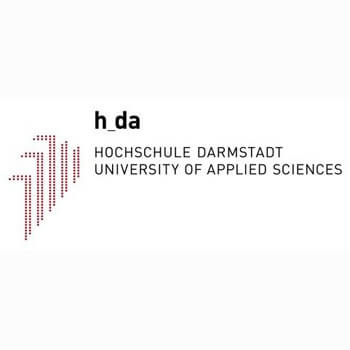
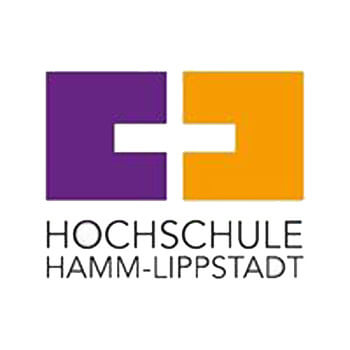
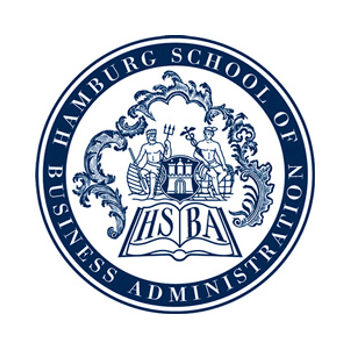

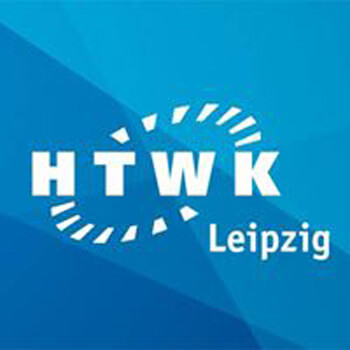


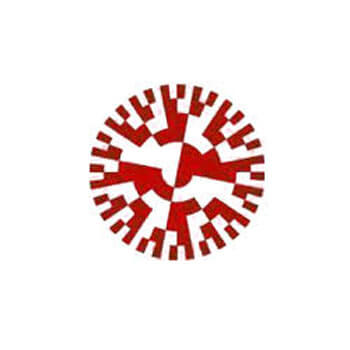









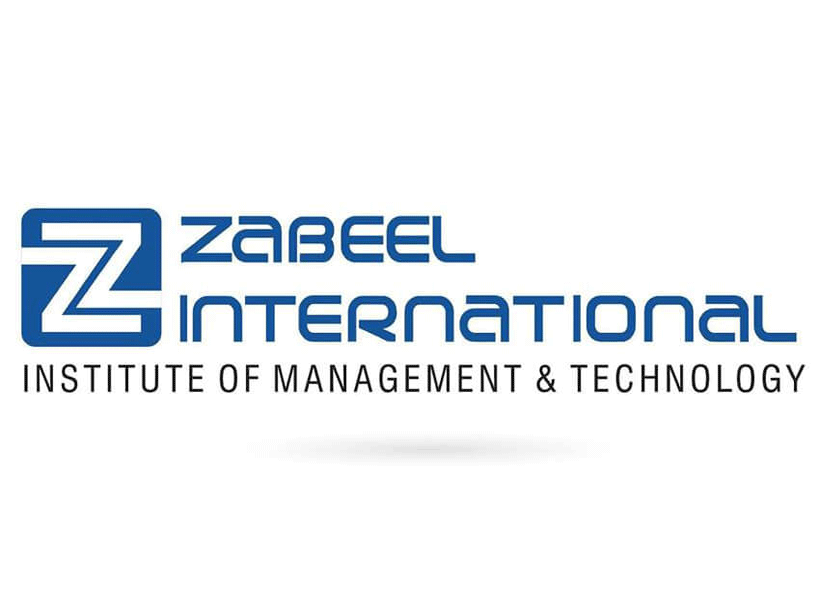
Leave a Reply